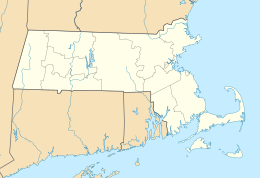
Nantucket is an island about 30 miles (50 km) by ferry south from Cape Cod, in the U.S. state of Massachusetts. Together with the small islands of Tuckernuck and Muskeget, it constitutes the Town and County of Nantucket, a combined county/town government. It is the only such consolidated town-county in Massachusetts. As of the 2020 census, the population was 14,255, making it the least populated county in Massachusetts. Part of the town is designated the Nantucket CDP, or census-designated place. The region of Surfside on Nantucket is the southernmost settlement in Massachusetts.

New Seabury is a census-designated place (CDP) in the town of Mashpee in Barnstable County, Massachusetts, United States, on Cape Cod. The area consists primarily of summer homes for wealthy families. Attractions include a county club and the Fells Pond, Daniels Island, and Littleneck Bay neighborhoods. The population of the CDP was 717 at the 2010 census.

Chelsea is a city in Suffolk County, Massachusetts, United States, directly across the Mystic River from the city of Boston. As of the 2020 census, Chelsea had a population of 40,787. With a total area of just 2.46 square miles, Chelsea is the smallest city in Massachusetts in terms of total area. It is the second most densely populated city in Massachusetts, behind Somerville, and is the city with the second-highest percentage of Latino residents in Massachusetts, behind Lawrence.
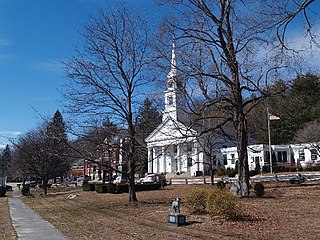
Sterling is a town in Worcester County, Massachusetts, USA. The population was 7,985 at the 2020 census.

Winthrop is a city in Suffolk County, Massachusetts, United States. The population was 19,316 at the 2020 census. Winthrop is an ocean-side suburban community in Greater Boston situated at the north entrance to Boston Harbor, close to Logan International Airport. It is located on a peninsula, 1.6 square miles (4.2 km2) in area, connected to Revere by a narrow isthmus and to East Boston by a bridge over the harbor inlet to the Belle Isle Marsh Reservation. Settled in 1630, Winthrop is one of the oldest communities in the United States. It is also one of the smallest and most densely populated municipalities in Massachusetts. It is one of the four cities that compose Suffolk County. It is the southernmost part of the North Shore, with a 7-mile (11 km) shoreline that provides views of the Atlantic Ocean to the east and of the Boston skyline to the west.
A homeowner association, or a homeowner community, is a private association-like entity often formed either ipso jure in a building with multiple owner-occupancies, or by a real estate developer for the purpose of marketing, managing, and selling homes and lots in a residential subdivision. In the United States, the developer will typically transfer control of the association to the homeowners after selling a predetermined number of lots. Generally any person who wants to buy a residence within the area of a homeowners association must become a member, and therefore must obey the governing documents including Articles of Incorporation, CC&Rs and By-Laws, which may limit the owner's choices in exterior design modifications. Homeowner associations are especially active in urban planning, zoning and land use, decisions that affect the pace of growth, the quality of life, the level of taxation and the value of land in the community. Most homeowner associations are incorporated, and are subject to state statutes that govern non-profit corporations and homeowner associations. State oversight of homeowner associations is minimal, and it varies from state to state. Some states, such as Florida and California, have a large body of HOA law. Other states, such as Massachusetts, have virtually no HOA law. Homeowners associations are commonly found in residential developments since the passage of the Davis–Stirling Common Interest Development Act in 1985.

Copiague Harbor is an incorporated community in the hamlet of Copiague. It is located south of Merrick Road, off of South Great Neck Road in Suffolk County, New York, USA, on the South Shore of Long Island. It is sometimes referred to as Great Neck Landing.

The University of Massachusetts School of Law is a public law school located in Dartmouth, Massachusetts. The only public law school in Massachusetts, it is the successor to Southern New England School of Law, a private law school that donated its campus and its assets to the University of Massachusetts Dartmouth. It is accredited by the American Bar Association.
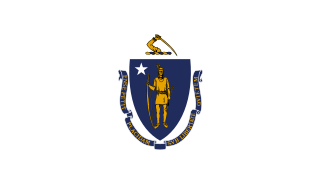
Massachusetts, officially the Commonwealth of Massachusetts, is the most populous state in the New England region of the United States. It borders on the Atlantic Ocean and Gulf of Maine to the east, Connecticut to the southwest and Rhode Island to the southeast, New Hampshire to the northeast, Vermont to the northwest, and New York to the west. The capital of Massachusetts is Boston, which is also the most populous city in New England. It is home to the Greater Boston metropolitan area, a region influential upon American history, academia, and industry. Originally dependent on agriculture, fishing and trade, Massachusetts was transformed into a manufacturing center during the Industrial Revolution. During the 20th century, Massachusetts's economy shifted from manufacturing to services. Modern Massachusetts is a global leader in biotechnology, engineering, higher education, finance, and maritime trade.

Suffolk University Law School is the private, non-sectarian law school of Suffolk University located in downtown Boston, Massachusetts, across the street from the Boston Common and the Freedom Trail, two blocks from the State House, and a short walk to the financial district. Suffolk University Law School was founded in 1906 by Gleason Archer Sr. to provide a legal education for those who traditionally lacked the opportunity to study law because of socio-economic or racial discrimination. Suffolk is the fourth-oldest New England law school in continuous existence.
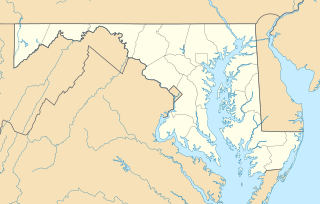
The Chesapeake Ranch Estates (CRE), also known locally as the Ranch Club, is located in Lusby, Maryland, United States, in southern Calvert County. CRE was founded in 1958 and is governed by a homeowners' association, which is officially called the "Property Owner's Association of the Chesapeake Ranch Estates" (POACRE). Today, CRE is composed of over 4,000 homes. The community is counted as a census-designated place for population statistics, with a residential population of 10,519 as of the 2010 census. At the 2000 census, the area was part of the Chesapeake Ranch Estates-Drum Point CDP.
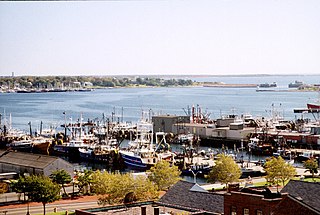
Southeastern Massachusetts consists of those portions of Massachusetts located along Buzzards Bay, including the cities of New Bedford and Fall River and their respective suburbs. Despite the location of Cape Cod and the islands to its south, which are the southeasternmost parts of the state, they are not always grouped in this designation. At its broadest definition, it includes all of Massachusetts south of Boston, southeast of Worcester, and east of Providence, Rhode Island, while at its narrowest definition, it is Bristol County and the Western portion of Plymouth County.

Karen Eileen Spilka is an American politician and attorney serving as a Democratic member of the Massachusetts Senate. She represents the 2nd Middlesex and Norfolk district, which includes the towns of Ashland, Framingham, Franklin, Holliston, Hopkinton, Medway and Natick in the MetroWest region of Massachusetts. She has served as the 95th President of the Massachusetts Senate since July 2018. Previously she served as a member of the Massachusetts House of Representatives from 2001 to 2005.

Charles Duane Baker Jr. is an American politician and businessman serving as the 72nd governor of Massachusetts since January 8, 2015. A member of the Republican Party, Baker was a cabinet official under two governors of Massachusetts and served ten years as CEO of Harvard Pilgrim Health Care.

A community solar farm or garden is a solar power installation that accepts capital from and provides output credit and tax benefits to multiple customers, including individuals, businesses, nonprofits, and other investors. Participants typically invest in or subscribe to a certain kW capacity or kWh of production. The farm's power output is credited to investors in proportion to their investment, with adjustments to reflect ongoing changes in capacity, technology, costs and electricity rates. Community solar provides direct access to the renewable energy to customers who cannot install it themselves. Companies, cooperatives, governments or non-profits operate the farms.

Solar power in Massachusetts has been increasing rapidly, due to Section 1603 grants for installations that began before December 31, 2011, and the sale of SRECs for $0.30/kWh, which allows payback for the system within 5 or 6 years, and generates income for the life of the system. For systems installed after December 31, 2011, and before December 31, 2016, the 30% tax grant becomes a 30% tax credit. There has been an appeal to the Congress to extend the 1603 program, the grant program, for an additional year.
The COVID-19 pandemic in Massachusetts is part of an ongoing pandemic of coronavirus disease 2019 (COVID-19) in the U.S. state of Massachusetts. The first confirmed case was reported on February 1, 2020, and the number of cases began increasing rapidly on March 5. Governor Charlie Baker declared a state of emergency on March 10. By March 12, more than a hundred people had tested positive for the virus. Massachusetts experienced a first wave of COVID-19 that peaked in late April 2020, with almost 4,000 people hospitalized with the disease, and a rolling seven-day average of 2,300 new confirmed cases and 175 confirmed deaths a day. A second wave began in the autumn of the same year and peaked in January 2021, seeing higher daily case numbers but fewer deaths and hospitalizations than the first wave. There was a smaller third spike of increased cases and hospitalizations in March and April 2021, which resulted in significantly fewer deaths than the first two waves. A fourth wave began in July and August 2021. Another wave occurred in the winter of 2021 to 2022, coinciding with the emergence of the SARS-CoV-2 Omicron variant in the state, and exceeding the peak number of cases in any previous wave. As of January 13, 2022, Massachusetts was experiencing a rolling average of 13,314 new confirmed cases and 43 confirmed deaths per day.
